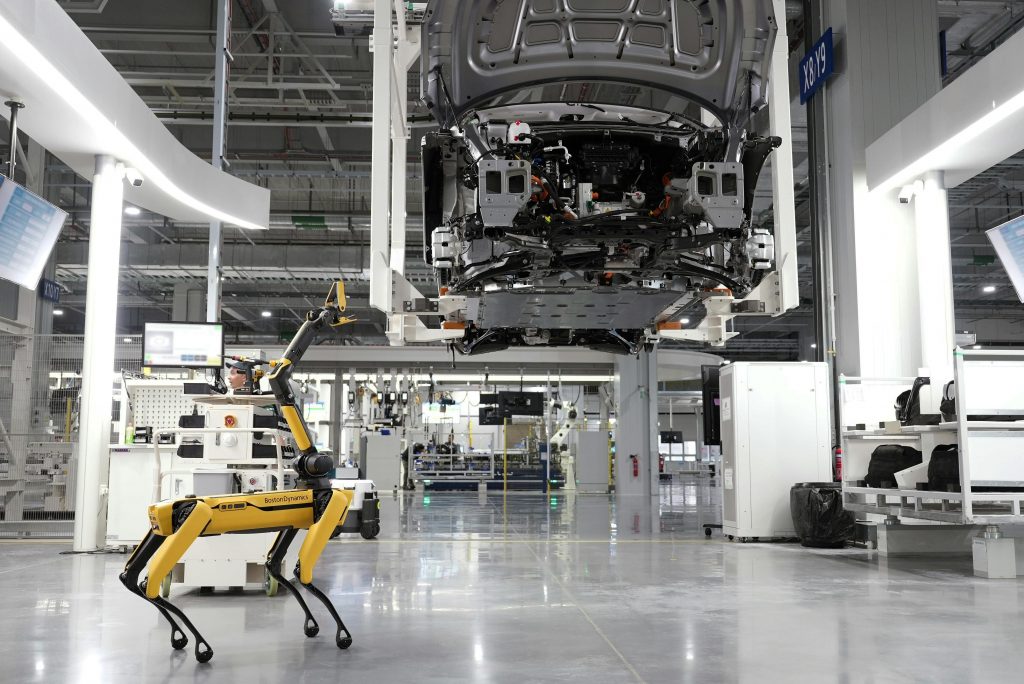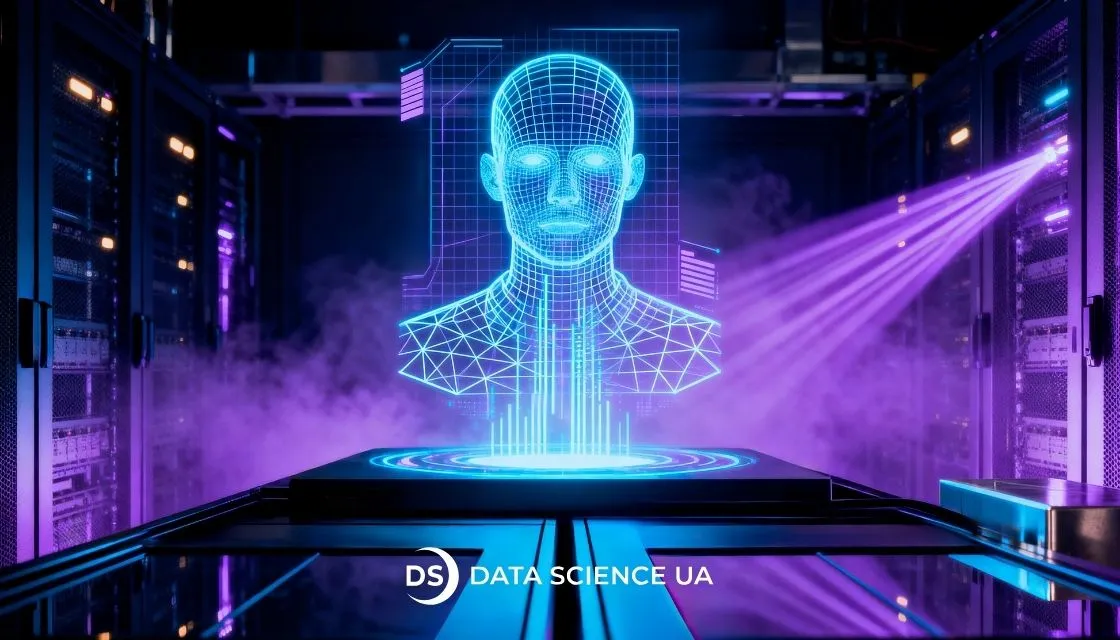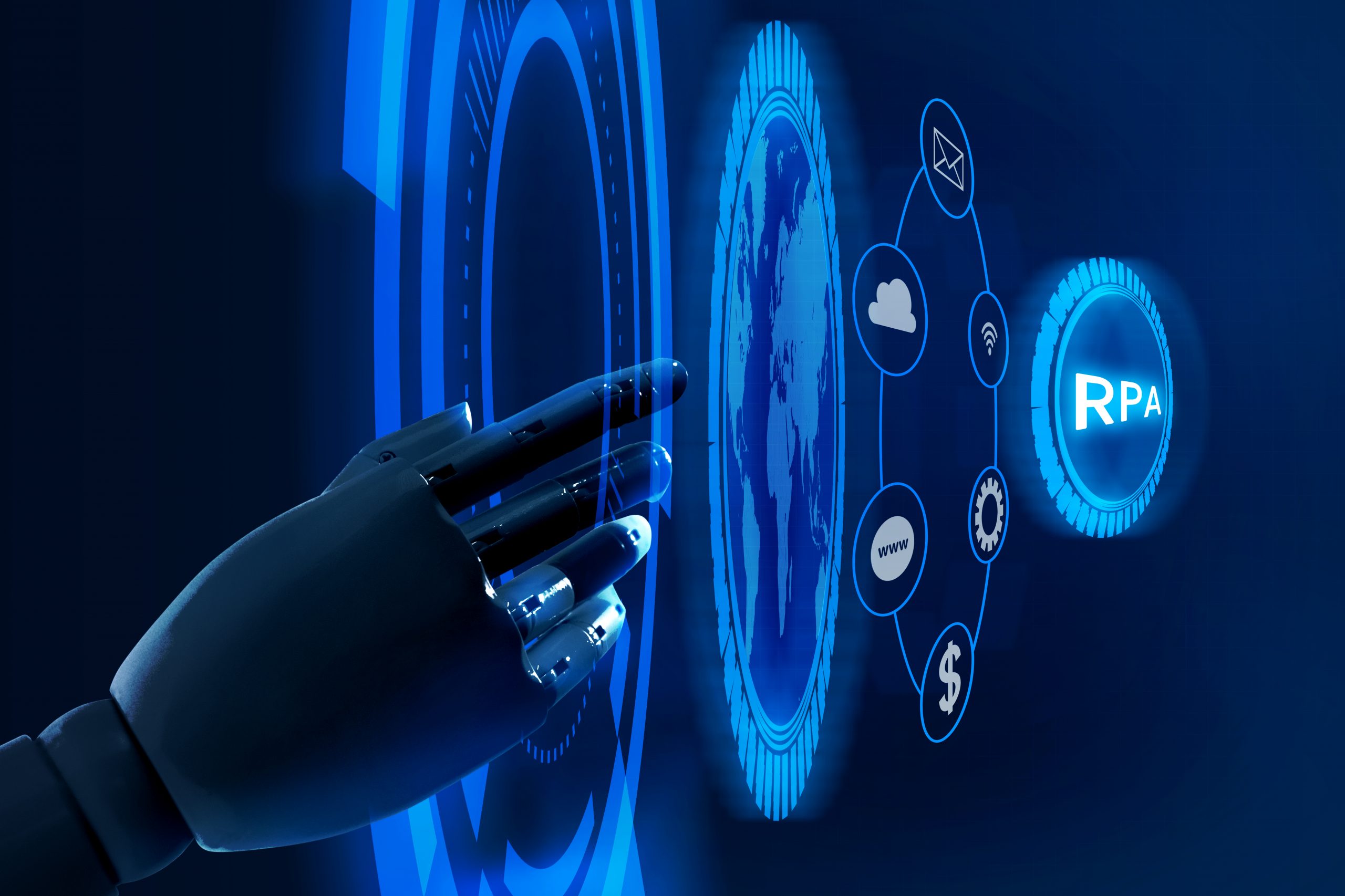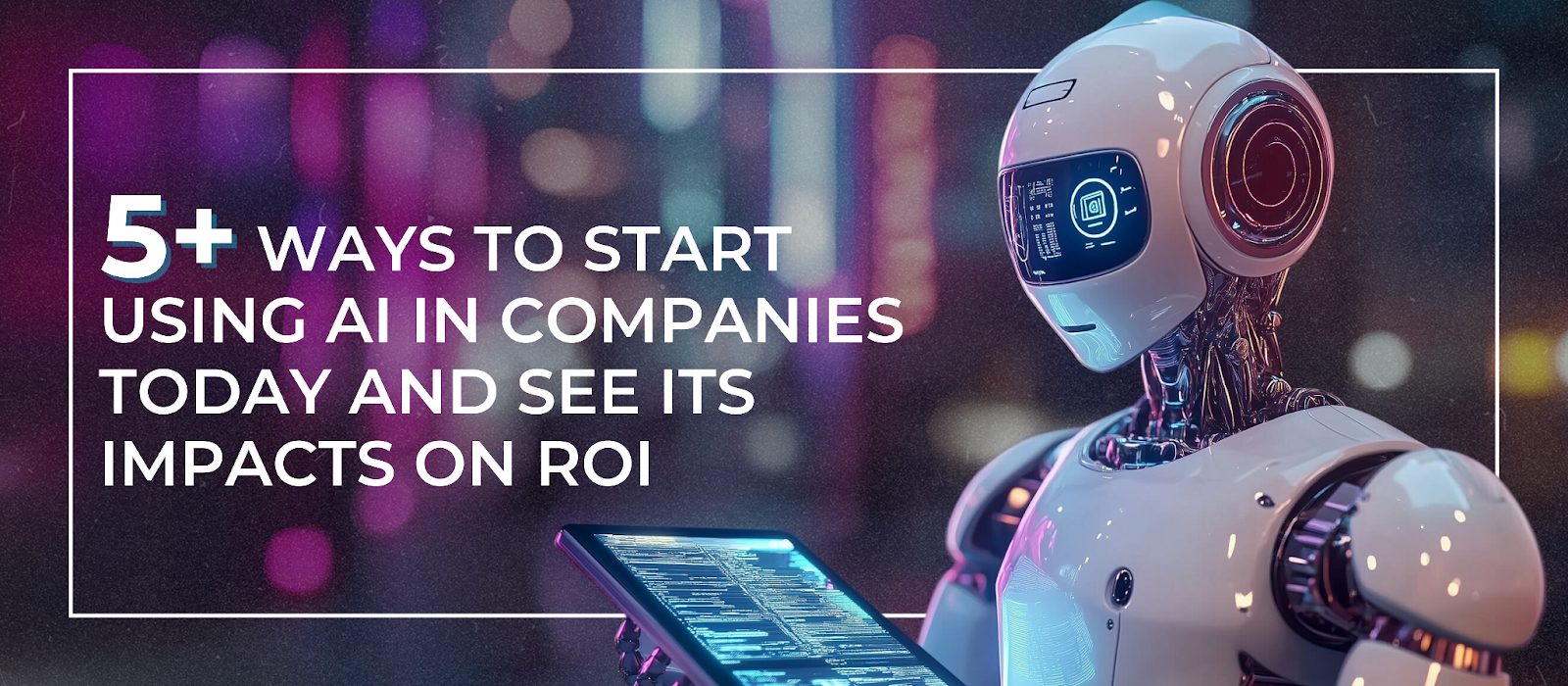Machine learning in retail: How it’s transforming the industry
ML is a powerful technology that’s changing the retail industry in many ways. By using data and smart algorithms, retailers can improve customer experiences, streamline operations, and boost profits. In this article, we’ll explore how machine learning applications in retail are working within the industry, highlight companies using these technologies, and look ahead to the future of this field.
Defining ML in retail
Machine learning in retail is a collection of algorithms that enable systems to learn from data and make predictions or decisions without being explicitly programmed. Machine learning retail helps retailers analyze customer behavior, inventory management, and personalized marketing. For more info, check out ML development services.
Market overview and statistics
Historically, retailing has been highly dependent on gut feel and manual approaches. Retail stores would struggle to properly analyze the information of the customers, thus missing opportunities and inefficiently managing their inventory. Pricing was backward-looking, and marketing was diffused, failing to target individually specific tastes.
Today, the industry has transformed dramatically. The global retail AI market is forecasted to reach $28 billion in 2026 at a growth rate of 34% year over year. This is prompted by the adoption of machine learning technologies, which help retailers enhance the customer experience and automate operations. For more info, please, refer to artificial intelligence in retail industry.
With the advent of e-commerce, companies today employ machine learning in retail analytics to learn about customers’ behavior, enhance supply chains, and predict market trends. Thus, companies that previously found it difficult are today equipped with more efficient tools to thrive in a competitive market.
The role of machine learning in modern retail
In the past, it was hard to personalize shopping experiences since there was less data. Now, ML algorithms analyze a lot of customer data in real time and enable retailers to offer customized suggestions and targeted advertising.
For instance, Amazon uses ML to build sophisticated recommendation engines that make personalized product suggestions depending on a user‘s purchasing behavior. Personalization enhances customer experiences, drives higher sales, and builds loyalty.
ML enables predictive analysis, therefore enabling retailers to accurately forecast demand. This improves inventory management, reducing overstock and stock-out situations. Machine learning in retail business can now even anticipate trends and plan accordingly ahead of time, making them one step ahead.
Core components of Machine Learning for retail
- Data Collection: Adequate data are collected from several sources by retailers, including the point-of-sales systems, customer interactions, and online buying behaviors.
- Data Processing: After this data has been gathered, it needs to be cleaned and formatted so that the data is accurate and relevant before it is analyzed by the ML algorithms.
- Model Training: The past data are used for training machine learning models to discover patterns and predict future behavior.
- Deployment: After training and testing, such models can be deployed to support real-time decision-making in retail systems.
Unlocking business opportunities with machine learning in retail
Understanding the current market state
Since people are purchasing products online in large numbers and people want everything easily, there is a need for companies to capitalize on the change from rivalry. Machine learning in retail industry provides great insights into customer behavior and market factors that can support retailers in making wise choices to make operations better and customer content. The practical applications of machine learning in retail are vast and carry tools that can improve the process of buying something in each respect.
List of top retail firms that practice machine learning
Indeed, many leading companies successfully use machine learning for retail to improve their operations:
- Amazon: This firm is known for its recommendation system. It uses ml retail to analyze customer behavior and create personalized shopping experiences. Also, it deploys dynamic pricing to optimize revenue.
- Walmart: Walmart uses machine learning in retail industry supply chain for retail industry efficiency, demand prediction, and inventory management. Their systems analyze trends in purchasing to make sure products are available at all times.
- Zalando: This online fashion retailer uses machine learning to offer personalized recommendations and market to specific customers. By knowing what shoppers like, they can make better deals and enhance customer loyalty.
These machine learning retail examples show how this tech can open new opportunities and improve retail operations.
 What is Machine Learning in retail?
What is Machine Learning in retail?
Top applications of machine learning in retail
Delivering personalized shopping experiences
Machine intelligence retail processes individual customer information made to serve custom product recommendations, which enhances customers’ participation along with loyalty. For example, Netflix employs ML for suggestions related to customized content, which retail businesses can follow for the recommendation of products. Imagine going to a website and feeling that each suggestion is just right that’s what machine learning does!
Dynamically adjusting prices using ML
Dynamic pricing strategies involve adjusting prices in real time in response to demand and competition. Airbnb is one of the great machine learning use cases in retail. This could be price variation depending on time, local events, or even weather conditions so that the business remains competitive.
Forecasting demand as well as managing inventories
Demand forecasting correctly is the key to successful inventory management. Machine learning reviews past sales trends and external factors to estimate future demand. Target uses ML to optimize stock levels so that products with high turnover are stocked. It minimizes waste but also ensures customers can find what they are looking for when they shop.
Customer segmentation for data-driven campaigns
Machine learning helps customer segmentation through an array of demographical and buying behavior-related attributes. Starbucks uses ML in making targeted marketing efforts, providing another layer of efficiency in reaching out to customers. This helps them target their promotional offers toward customer group preferences for better sales performance.
Advanced fraud detection systems
Fraud detection is very important for retailers. Machine learning for retail stores can identify unusual patterns of transactions, which helps in the early detection of fraudulent activities. PayPal uses ML to monitor transactions and flag suspicious behavior in real time. So, they provide security and give customers peace of mind while shopping.
Sentiment analysis for customer insights
Understanding customer sentiment is key to improvement. Machine learning analyzes social media and customer reviews to measure public sentiment. Nike applies sentiment analysis to enable and refine product development and marketing based on customers’ feedback. Thus, stores are able to act quickly and keep up with what’s top of mind and be desirable and sought after.
In-store analytics for monitoring and streamlining experiences
Machine learning allows retailers to discover how customers shop and navigate through physical stores. Macy’s utilizes customer analytics to identify the optimal store layout to offer a better customer experience. Because retailers know precisely how to navigate customers through a store, they are able to respond to keep customers interested and satisfied.
Chatbots and virtual assistants
Chatbots and virtual assistants have revolutionized retail customer support with 24/7 support and improved consumer experience. AI-based solutions can perform a complete gamut of tasks, from assisting customers with queries to guiding buyers during the transaction phase.
24/7 support is provided by chatbots at present, thereby keeping customers on their toes. NLP allows the virtual assistants to comprehend and converse in natural language, improving the experience. If you want to implement it, visit custom chatbot development services.
Predictive maintenance for store equipment
Predictive maintenance can predict machine failures and thus enable proactive maintenance. Home Depot uses predictive maintenance in order to minimize downtime and keep all requisite systems running. That means fewer service interruptions and a more seamless customer experience overall. To learn more about this topic, explore the role of artificial intelligence in the retail industry.
Custom vs off-the-shelf ML solutions in retail
In implementing machine learning in retailing, there is an option of having off-the-shelf or custom solutions.
Choosing the right solution type
Custom solutions are tailored to address a specific retailer’s specific requirements, and they provide flexibility and scalability. Custom solutions may be employed for one problem, for example, customer segmentation or inventory management, but they take more effort and time to implement.
Off-the-shelf systems offer quick implementation and lower initial costs. Off-the-shelf is a pre-made system that can be beneficial in standard tasks but can fall short of offering personalized needs in more complex retail environments. Learn more in semantic image segmentation services.
Cost and ROI considerations
Cost is a major motivator in making the choice between custom and off-the-shelf ML solutions. Custom solutions cost more in terms of initial development expenses, but they can be more effective in terms of long-term ROI by addressing particular business needs better.
Off-the-shelf products are generally cheaper initially, but companies need to determine if they will serve their changing needs in the long run. Determining the possible ROI of each should be a crucial aspect of a well-informed decision.
Integration capabilities
Another important aspect is integration capabilities. Custom solutions can be designed to seamlessly integrate with existing systems, ensuring a cohesive workflow. Off-the-shelf solutions may offer standard integrations but could require additional modifications to fit into a retailer’s unique technology ecosystem.
Scalability and customization options
Scalability is crucial as retailers grow. Custom solutions can be built with scalability in mind, allowing businesses to adapt as their needs change. Off-the-shelf products may have limitations in this regard, making it essential to assess future growth when choosing a solution. Check out our computer vision development services.
Automating product categorization
Manual product categorization is slow and prone to many errors. With machine learning, this is automated, with a high degree of accuracy and efficiency. EBay uses ML to give better visibility to products within its platform, helping customers find what they want without much hassle.
Predictive insights to reduce customer churn
With machine learning, patterns showing the potential churn of customers can be identified. The retailer could proactively act to prevent that churn, such as by providing personalized offers. Spotify does the same thing in predictive analytics to re-engage the users who might leave, presenting content relevant to their taste, which retailers can replicate to keep their customers coming for more.
Supply chain optimization for cost savings
Machine learning increases supply chain efficiency by offering forecasts of demand and the optimization of logistics. Coca-Cola applies ML in smoothing the operations of its supply chain for cost savings with the service of better quality. This ensures the timely and correct quantity delivery of products.
 ML solutions in retail industry
ML solutions in retail industry
Overcoming barriers to machine learning in retail
Solving data quality and privacy issues
Data quality and privacy are significant challenges in machine learning implementation. Retailers must ensure they have clean, accurate data points while complying with privacy regulations. Investing in data management solutions can help address these concerns. Poor data quality can lead to incorrect predictions, making it crucial for businesses to establish good data practices.
Integration of ML into current retail systems
The integration of machine learning into existing safe retail environment systems can be very complex. For companies to be able to handle ML use cases in retail, investments in the right technology and infrastructure are often required, along with collaboration between IT and business teams to ensure an easy transition. Retailers may have to train their employees to work on these new systems, which consumes much time and resources.
Scaling across retail
With companies growing to meet different sales channels—online, physical, and mobile—scalability across the different channels takes center stage. Omnichannel retailing requires smooth integration of customer experiences so that customers enjoy the same level of service regardless of how they interact with the brand. AI technologies have the capability to do this by providing customer behavior insights through channels, streamlining inventory management, and allowing personalized marketing approaches.
Controlling real-time operations
AI technologies give retailers the capacity to track inventory levels, customer behavior, and supply chain management in real time. Business agility gives organizations the capacity to respond rapidly to market changes, customer inquiries, and any likely disruptions. AI can use its capabilities to make processes such as dynamic pricing, inventory management, and customer service easier so that retailers can maintain a competitive edge.
Overcoming model bias
Model bias needs to be tackled to avoid unfairness and inaccuracy in AI systems. Retailers need to be wary of biases in their data and algorithms that lead to incorrect conclusions. Periodic auditing and updating of AI models can avoid and correct biases.
Managing AI talent requirements
It is having a high-quality workforce that will ensure the successful deployment of AI in the retail industry. Talent management for AI is not merely the recruitment of machine learning and data science experts but also sustaining a culture of lifelong learning and adaptation. Businesses must invest in training and development to ensure that they are always abreast with emerging technologies and practices. Business units and IT teams should synchronize with each other to lead AI initiatives and business goals in one direction. For more insights on how to leverage AI in your business, check out our AI consulting services.
Steps to adopt machine learning in retail
- Define Business Objectives: Decide what you want to achieve through machine learning. Perhaps it could be to enhance customer experience, optimize inventory, or bring in greater excitement in marketing.
- Gather and organize data: Gather data from all possible sources related to the sought-after objective and clean it. Cleaning means removing duplicates and correcting errors.
- Choose the right algorithms: Choose machine learning algorithms that suit the nature of your data and align with your business objectives. Various algorithms apply to various tasks; therefore, choices should be made wisely.
- Train and test models: Use historical sales data for training your models and test them to ensure that they work as expected. This helps verify that the models are making accurate predictions.
- Deploy and monitor: Deploy the machine learning models in retail sector and monitor their performance to make necessary adjustments. Regular monitoring helps catch any issues early.
- Iterate and improve: Machine learning is a never-ending process. Keep gathering data and refining your models to adapt to changing market conditions and consumer preferences. This iterative process ensures the models remain relevant and effective.
Case studies: Successful retail machine learning projects
H&M’s store location and demand optimization
H&M uses machine learning in retail to analyze the locations of stores and the demands of customers. It allows them to optimize store placement and inventory, which enables them to increase sales by improving customer satisfaction. The company will be able to reach their customers’ needs rather than having extra stock.
Inventory management at Walmart
Walmart’s machine learning and retail algorithms predict demand at local levels to make sure products are in stock. This helps reduce waste. Large systems analyze customer purchasing habits to optimize inventory management effectively.
Target’s marketing personalization
Target uses machine learning to analyze shopping habits and personalize marketing to individual customers, leading to loyalty and sales. Target will understand customer preferences, which helps in creating promotions that appeal to shoppers.
Starbucks’ customer engagement
Starbucks applies machine learning to analyze customer preferences and enable them to offer rewards and promotions that resonate with their audience. This strategy will keep customers engaged and make repeat visits.
 Successful implementation of ML in retail
Successful implementation of ML in retail
Why machine learning services are crucial for retail success
Machine learning services are vital to retailers who want to optimize their operations and stay competitive. Through these services, businesses can derive insights that guide decision-making, increase efficiency, and maximize customer experiences. An investment in ML can yield substantial long-term dividends, including increased revenue and customer loyalty. If you want to know more about it, go to image processing services.
The role of Data Science companies
Data science companies are in crucial service to help retailers get ML. They help with data analysis, model-building as well as system-integrations so that all kinds of retailers can aptly apply ML technologies with accuracy and perfection. Hence, an association of big data and experienced data firms facilitates speedier adoption with a larger influence over business outcomes for more excellent benefits.
Future scopes of ML in retail stores: AR for virtual retail shopping
In the future, retail use cases for machine learning will also involve AR applications that let customers visualize products in their environments before making a purchase history. Machine learning will further enhance these experiences and make virtual shopping even more immersive and interactive. Imagine virtually trying on clothes or seeing how furniture fits in your living room! Check out the future of machine learning to understand the broader implications of these technologies.
Building trust with ethical AI practices
Now that deep learning in retail is the standard, it is time for retail stores to switch gears and look to the ethics of AI. Putting trust in customers with honesty and responsible use of data will be essential to long-term success. Salesforce and others are already paving the way by pushing forward with ethical AI best practices to ensure the continued responsible use of technology.
Supply chain resilience
Deep learning in retail will play an important role in improving resilience in supply chains through better prediction of disruptions and optimization of logistics. Increasingly, retailers will count on ML to respond appropriately to changing conditions and see that products get to their customers efficiently.
The dawn of hyper-personalization
With improving data-collection techniques, hyper-personalization will be the way retailers will head. Machine learning will enable firms to create highly personalized shopping experiences, and personalize product suggestions, marketing messages, and promotions to the unique tastes of each customer. It will make every customer’s shopping more enjoyable and relevant to them.
 AI in retail industry
AI in retail industry
Why Data Science UA is your ideal retail AI partner
If you are a retailer looking to implement machine learning, Data Science UA offers custom machine learning retail solutions. You can utilize their machine learning expertise to minimize your adoption challenges, achieving the most from this groundbreaking technology. Check out our machine learning retail use cases in retail AI solutions.
Final thoughts
Machine learning in retail supply chain management is an area where there is a lot of scope for innovation and growth. With the power of AI, retailers can offer personalized experiences, automate operations, and increase profitability. As machine learning application in retail industry comes into greater use, those adopting changes will best be placed to thrive. Let our data analytics services company assist your business!
FAQ
What are the challenges retailers face when implementing machine learning?
These often include data quality and privacy concerns, integration difficulties with the current systems, and high skilled labor to manage the projects in ML. Furthermore, change is often resisted in organizations.
Which tools and platforms are generally used for machine learning in retail?
Some common tools and platforms include TensorFlow, Python, R, Apache Spark, and various cloud services, such as AWS and Google Cloud, that have been designed to include specific retail applications for machine learning capabilities. These platforms are essentially the infrastructure in which data can be processed, models trained, and deployed.
How do retailers balance the use of machine learning with data privacy?
To ensure data privacy, retailers should implement strong data governance policies, anonymize customer data, and comply with regulations like GDPR. Using encryption and secure data storage solutions can also help protect sensitive information while enabling effective machine learning applications.
What are the future trends of machine learning that retailers should observe?
Retailers should track buying trends such as augmented reality for shopping, hyper-personalization, and ethical AI practices. This will help the business stay competitive and respond to consumer needs. In the future, companies will thrive as the retail machine learning landscape continues to grow.





